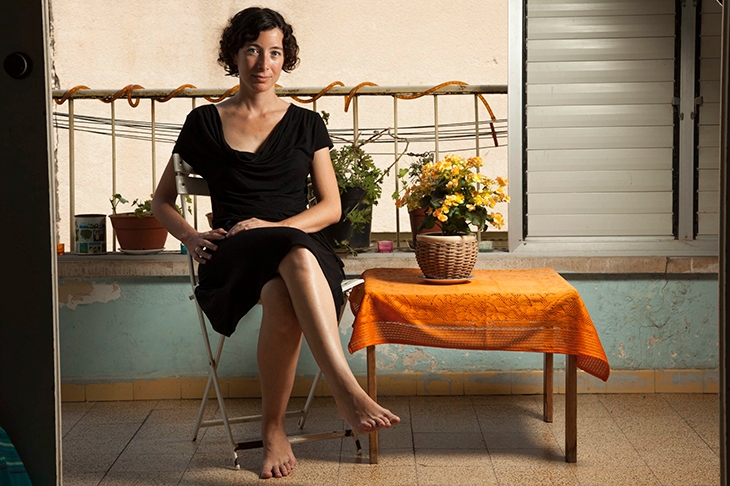
The Hebrew word for ‘truth’ – see above left (emet) is comprised of the first, middle and last letters of the alphabet. Truth, scholars say, pervades all things. Talmudists add that the aleph, mem and tav that form emet are balanced, grounded characters, while the letters that make up the word for‘lie’ – see above right (sheker), teeter precariously on the page. In our post-truth era of Pinocchian politicians and social media spewing falsehoods, however, it may well be truth that sits on shakier ground.
Like Ayelet Gundar-Goshen’s previous novel Waking Lions, Liar considers the consequences of a moment of misjudgment that unfolds as if fated. Following a verbal altercation at the ice-cream parlour where she works, 17-year-old Nofar finds herself falsely accusing a has-been talent-show star of sexual assault:
She didn’t know things would go so far. She just wanted him to leave her alone. But then everyone came and he humiliated her again, this time in front of everyone, and when they asked her if he’d touched her, a kind of ‘Yes’ came out of her, not intentionally, the ‘Yes’ of hysteria, and then it continued with the police and, later, on TV.
In the aftermath of the incident, there is little room for Raskolnikovian remorse; rather, the retelling of the tale to a widening audience allows Nofar — whose name means ‘water lily’ — to blossom. ‘The truth becomes some people,’ writes Gundar-Goshen, ‘and others are made beautiful by falsity.’
Liar offers a modern twist on the Cinderella story. Why settle for the attentions of a pimply Prince Charming when one can escape the ‘abyss of ordinariness’ with the adulation of the crowd? The plot proceeds at a brisk clip, as suspense builds as to whether Nofar will recant, be turned in or send an innocent man to jail. A few clunky plot devices are easily forgiven for the sheer charm of the storytelling, peppered with the author’s dry wit, which leaves nothing — not suicide, not even the Holocaust — sacred.
A clinically trained psychologist, Gundar-Goshen renders a nuanced consideration of morality, probing what she refers to as the ‘grey areas of the soul’. She doesn’t let readers off the hook with simple good guy/bad guy delineations: neither the accused nor the accuser is entirely innocent or entirely evil. Nor, we might conclude, are we. While the book will be published in the US as The Liar — a shortening of the original Hebrew title The Liar and the City — Pushkin Press’s UK title sans article effectively echoes the accusations of ‘Liar!’ reverberating throughout the novel. We see each of the characters playing fast and loose with the truth, whether with white lies or whoppers — including a deaf-mute witness who is neither deaf nor mute, a cowardly war veteran decorated for bravery and an elderly woman who appropriates her dead friend’s identity to pose as a Holocaust survivor.
In another nifty Talmudic party trick, the trio of letters forming ‘truth’ (aleph, mem and tav) find themselves at the end of the first few words of Genesis, ‘In the beginning God created’. In Gundar-Goshen’s oeuvre, while benevolence emanates from certain celestial bodies, God seems to have stopped his work of creating the heavens and the earth. In a secular society, left to navigate ‘the minefield between the truth and the lie’ on our own, perhaps it’s only human empathy — which Gundar-Goshen extends in spades — that offers any hope of redemption.
Liar was inspired by a news story of a false accusation of assault by an Eritrean refugee who was a minor. The media’s vilification of the girl made it ‘too easy’ to exclude her from humanity, Gundar-Goshen explained in an interview on BBC Woman’s Hour: ‘It’s much more difficult, but also much more interesting, instead of calling her a monster to try to understand her.’ We are driven to lie when the truth fails us, says Gundar-Goshen. More intriguing than a lie, then — whether in literature or in life — is the intolerable truth it hopes to hide.






Comments